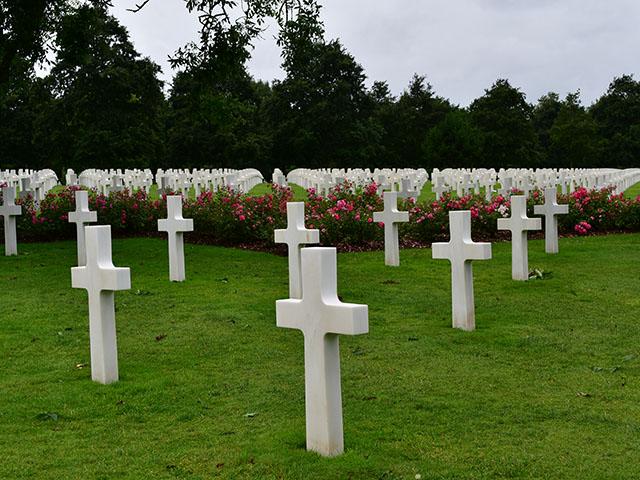Life Out of Death

Normandy, a province situated on the English Channel in northwest France, is an agricultural region today. But on June 6, 1944, the beaches of Normandy were stained red with the blood of thousands of Allied soldiers who lost their lives in the D-Day invasion of World War II.
On that terrible day, 176,000 troops, supported by the largest naval armada ever assembled, stormed Omaha, Utah, and other Normandy beaches. Within weeks, more than 800,000 Allied troops had amassed in France for the purpose of freeing Europe and, ultimately, the world from the death grip of Hitler and the Axis powers.
Most people have seen films about the invasion; others have read, perhaps extensively, about it. But the full significance of that day becomes clear when one walks among the cemeteries that hold the dead of D-Day. Rows upon rows of gleaming white crosses mark the graves of the thousands who died for freedom.
On another wind-swept hill, thousands of miles from Normandy and nearly 2,000 years before D-Day, stood another cross. It was not a gleaming cross marking the grave of a fallen hero; rather, it was a rough-hewn cross used by Roman soldiers for crucifying criminals. Yet it was a cross of war nonetheless—a war for the freedom not of a continent but of the entire human race.
When Jesus died on the cross of Calvary, He paid the price for our spiritual freedom. When He was raised from his grave on the third day, He made it possible for us to live free from sin, free to be all that God created us to be.
Some crosses represent the gift of political and economic freedom, and for that we are grateful. But the cross of Christ gives us the most important freedom of all—the freedom to move beyond the tyranny of sin into new life as the children of God. It’s because of that cross of Calvary that you and I can declare,
“I have been crucified with Christ; and it is no longer I who live, but Christ lives in me; and the life which I now live in the flesh I live by faith in the Son of God, who loved me and gave Himself up for me” (Galatians 2:20 NASB).





